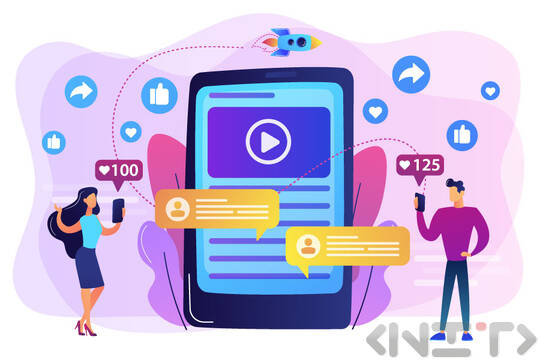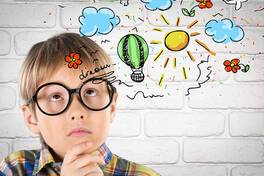
What is media literacy?
Media literacy in practice is a set of skills, knowledge and habits that we apply in our everyday lives to understand, appreciate and interact with media information and environments.
Media literacy is a key aspect of our ability to understand and participate in the modern information world.
What does media literacy involve?
Media literacy consists of three main components that play an important role in understanding and interacting with media information.
- Personal Focus: Personal focus represents our mental and emotional connectedness to media messages. It includes our interests, values and preferences. For example, if you are passionate about ecology, you are likely to seek out information related to that interest and understand media messages in the context of environmental issues.
- Patterns of perception: patterns of perception are the way we organize and interpret the information we have received. This includes our experience and education. For example, if you have specialized study in history, you may find it easier to understand and analyze historical context in news articles.
- Media literacy skills: skills are the practical habits we develop to understand and create media content. This includes skills such as reading, writing, analysis, critical thinking and even technical skills related to using media tools.
The components of media literacy help us to achieve a broader understanding of media messages and to critically evaluate them. They allow us to filter the information we are presented with and make informed decisions.
Media literacy skills
Media literacy consists of several key skills that are essential in today's information context:
Access to information: the ability to find and obtain information from a variety of sources, including the Internet, print media, television and radio.
Analysing information: The ability to understand and analyse information by discerning facts from opinions, understanding context and finding hidden messages.
Credibility assessment: The ability to assess the credibility of sources of information and to distinguish true information from the personal opinion and bias of the person presenting it.
Media content creation: the ability to create and share your own media content, such as texts, videos, blogs and social media.
Active participation: the ability to actively participate in media discussions, influence public opinion and promote change in society through media means.
How is media literacy measured?
Media literacy is measured in four main ways:
Understanding basic facts: this dimension focuses on the basic facts and information that we understand from media sources.
Emotional dimension: this dimension covers emotional attitudes towards media messages and how they affect our emotions.
Aesthetic dimension: this refers to the visual and aural aspect of media messages, as well as their creativity and expressiveness.
Moral dimension: this aspect refers to moral and ethical issues related to media literacy, including issues of transparency, fairness and responsible use of media tools.
Key questions for determining whether information is correct?
When evaluating information in the media, it is important to ask the following key questions:
- Credibility: How credible is the information and how can we confirm it?
- Source: Who is the source of the information and what is its reputation?
- Fact or opinion: do we distinguish between facts and opinions expressed in the media release?
- Target audience: what is the target audience of the media message and what idea does it want to push?
- Bias: Are there signs that indicate that there is a biased opinion in the media message?
Why is media literacy necessary?
Here are some specific reasons why we need to have media literacy:
Detecting fake news messages
Media literacy helps you know when information is unreliable or false. For example, if you see a headline that sounds too shocking, you might check whether other reliable sources confirm it before accepting it as true.
Analysis of media manipulations
Media literacy allows you to understand how the media can manipulate information. For example, you can recognise doctored images, the use of emotional tricks or manipulative language in articles.
Choice of different sources
Developing media literacy means not limiting yourself to one source of information. Check news websites, read different points of view and follow a variety of media platforms.
Sharing information wisely
Before you share a news story or article on social media, make sure you've read it and understand the content, and make sure the information is reliable.
Ability to understand statistics and data
Media literacy helps you analyze statistics and graphs that are often found in news stories.
Digital security skills
Knowing basic digital security principles, such as creating strong passwords and protecting personal information, is part of media literacy.
Participation in public discussions
Media literacy makes you better equipped to participate in discussions and debates in society as you understand how information affects people.
Support for independent media
The active support of independent media and news outlets helps ensure the diversity and quality of the information that reaches you.
Training and education
Learning and education continue throughout life. Participation in courses and educational events not media literacy can be an important part of using it properly.
Advancing Media Literacy Education: A Critical Imperative
Using media skills to change society
Finally, media literacy allows you to use your media skills and influence to support social change, influence public issues and deliver important messages.
Practicing media literacy not only makes you more knowledgeable, but also allows you to be a more active yet aware participant in the media environment and society at large.
Media literacy is a necessary skill in today's world where information plays a key role in our daily lives. By developing this type of literacy we can become more aware and active participants in the media environment by recognising, analysing and evaluating the information that is presented to us. This allows us to make informed decisions and engage in public debates and initiatives with greater understanding and ability to influence public attitudes.
If you want to protect yourself from online threats, Cyber Security training will be useful.







